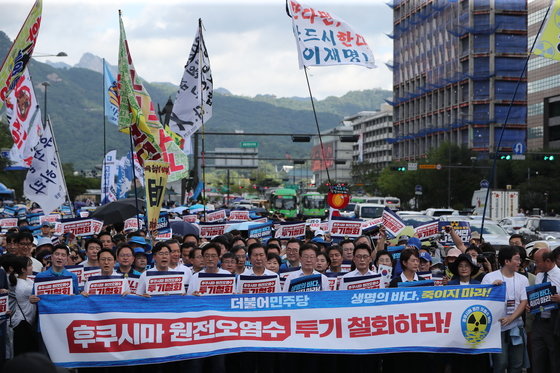Japan intends to filter and dilute the contaminated water and gradually release it into the Pacific Ocean for the next 30 years starting from August 24. This dispersed water is likely to be influenced by various oceanic currents, which determine the movement and distribution of water in the Pacific Ocean. Discussions about the potential reach of contaminants has sparked global apprehensions.
Despite the promises of Japanese authorities and affirmations by IAEA that the disposal of the contaminated water will be carried out in a safe way and have a minimal impact on the environment, some governments and environmental groups have sharply criticized the decision.
The South Korean government has stated that its own assessment found no technical or scientific problems with the Japanese plans. However, there have been strong criticism and protests from the main opposition party and various environmental and civic groups, who believe the disposal of the contaminated water endangers public health and the seafood industry. Some surveys indicate that a large majority of the Korean public oppose the Japanese decision and might abstain from seafood after the release. The ruling party has accused the main opposition party of inciting anti-Japanese sentiments, while critics have accused the government of trying to improve Korea-Japan ties at the cost of public health. South Korea has also placed a ban on seafood imports from Fukushima and seven other prefectures since 2013.

The Fukushima water release received intense opposition from China, which labeled the move “extremely selfish and irresponsible” and criticized Japan for endangering the global marine environment. Moreover, China — the largest market for Japanese seafood exports — suspended all aquatic imports from Japan in a move it declared was meant to prevent health and safety risks due to contaminated water discharge. This import ban has been called “totally unacceptable” by Japan. Some international relations experts see this event as a part of the general deterioration in China-Japan ties, along with disagreements on Taiwan and the increasing US-China competition. In addition to the mainland blanket import ban, Hong Kong has also banned some Japanese seafood imports. Moreover, some governments in the region have instituted radiation safety tests on seafood in order to ease public concerns.
Various governments in the Pacific region and around the world have also voiced support for the decision, such as the US Secretary of State Antony Blinken declaring that Washington was satisfied with Japan’s plans, which he described as safe and in line with international nuclear safety standards. The EU also released a statement affirming IAEA’s finding that Japan’s approach was consistent with the highest safety and radioactivity standards. Similarly, the Philippines Department of Foreign Affairs announced that it had no objection to the Japanese plans.

